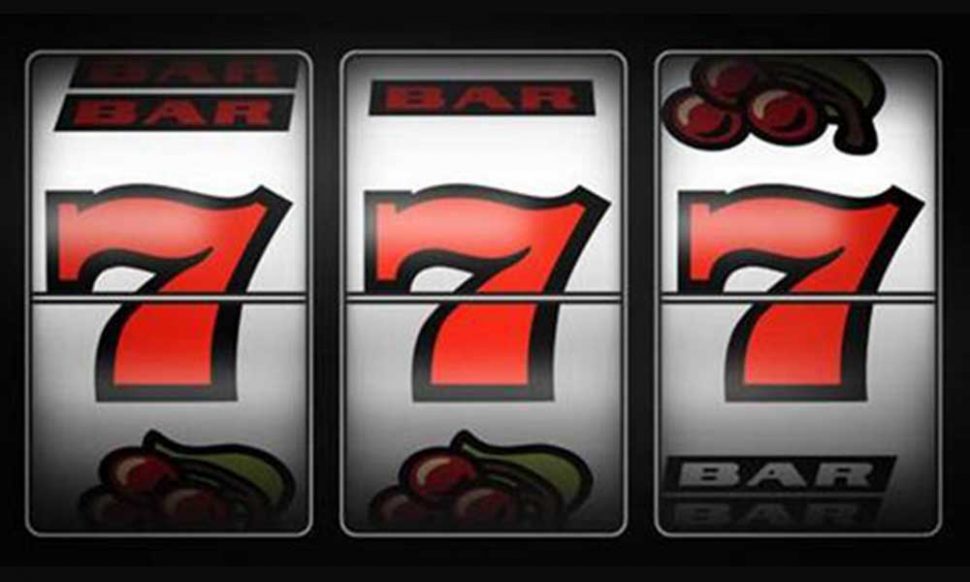In many cultures around the world, seven is considered a lucky number. … In fact, if you start looking for reasons why seven is so popular throughout history across various cultures, you'll find that the number seems to appear everywhere. In fact, if you start looking for reasons why seven is so popular throughout history across various cultures, you'll find that the number seems to appear everywhere. It is said that the world's favourite number is lucky 7. You can see there are seven days of a week, 7 colours of the rainbow, seven notes on a musical scale, seven continents, and seven seas. Even in fictional stories number 7 is used very often.
Some people find their birth date numerology number to be their lucky charm. In numerology, Number 7 is considered as the universally lucky number in many of their auspicious work. The number seven has a particular meaning in various religions. In the Christian religion, as mentioned in the Old Testament,Genesissays that God created the world in six days and rested the seventh. For this reason, it is also considered a holy number. The seven Classical planets resulted in seven being the number of days in a week.
It is often considered lucky in Western culture and is often seen as highly symbolic. Unlike Western culture, in Vietnamese culture, the number seven is sometimes considered unlucky. According to astrology everyone is assigned an astrological sign at birth among a set of twelve according to the position of celestial bodies on the sky.
Since astrology is a superstition masquarading as a science, there is no scientific evidence that a person's sign has any bearing on their luck in a lotto draw or in anything else. Therefore, it does not make sense to generate a lucky number for today based on someone's astrological sign. It seems that every culture has lucky numbers and unlucky numbers. In Japan, four and nine are considered unlucky numbers because of their pronunciation. Four is pronounced "shi," which is the same pronunciation as death.
Nine is pronounced "ku," which has the same pronunciation as agony or torture. In fact, some hospitals and apartments don't have rooms numbered "4" or "9". Some vehicle identification numbers are restricted on Japanese license plates, unless someone requests them. For example, 42 and 49 at the end of plates, which are linked to the words for "death (shini 死に)" and "to run over (shiku 轢く)". The full sequences 42-19, (proceeding to death 死に行く) and (time to die 死に頃) are also restricted. Learn more about unlucky Japanese numbers on my "Question of the Week" page.
If you are not familiar with Japanese numbers, check out our page for learning Japanese numbers. It is believed that there is a powerful connection between number 7 and the religions of the world. Biblical scholars marks that number 7 is quite significant in the Bible. If you take a look at the creation story, God made the world in 6 days and rested on the 7th day.
With this, it is believed that the number seven often represents perfection or completeness in the Bible. The number 7 itself isn't committed to any religion, but to the people who follow its grace are devoted to a singular power. 3 (三), pronounced san, is considered lucky due to its similarity in sound to the word that means birth. Additionally, this number represents the three stages in the life of humans - birth, marriage, death - that adds to its importance in Chinese culture.
Why 7 Is Called Lucky Number If a person is to celebrate their 66th birthday, that is a grand occasion. New ventures or contracts are signed on dates that have 6 in them. There is a strong connection between the number seven and many religions around the globe. Lucky number 7 is even the basis for many myths and folklore.
Ancient beliefs from around the world believed that the seventh son of the seventh son would be gifted with magical powers . In the Bible, scholars claim that God created the world in six days and used the seventh day to rest. Because of this, the number seven is used to illustrate an idea of completeness throughout the Bible. In China, lucky numbers have pronunciations that are similar to words with lucky meanings. Number 8 holds huge significance as a lucky number. To a lesser extent 2, 6, and 9 are considered lucky.
As well as these general number superstitions, fengshui and the Chinese zodiac dictate different number luck for different places/people. It has had significance in almost every major religion. In the Old Testament the world was created in six days and God rested on the seventh, creating the basis of the seven-day-week we use to this day.
In the New Testament the number seven symbolizes the unity of the four corners of the Earth with the Holy Trinity. The number seven is also featured in the Book of Revelation . The Koran speaks of seven heavens and Muslim pilgrims walk around the Kaaba in Mecca (Islam's most sacred site) seven times. In Hinduism there are seven higher worlds and seven underworlds, and in Buddhism the newborn Buddha rises and takes seven steps.
7 was widely used in ancient Chinese culture, for example the Seven Treasures for Buddhist Scripture refer to gold, silver, colored glaze, coral, amber, seashell, and agate. Another example is the Double Seventh Festivalwhen the Milky Way Lovers can have their annual meeting only on July 7th. As a Chinese legend goes, when the Jade Emperor in Heaven learnt that his beloved daughter, Weaving Maid, had married a poor cowherd and lived a happy life, he created the Milky Way to separate the lovers. After that, only on the seventh day of the seven month each year, the Cowherd and the Weaving Maid got a chance to meet on the Magpies Bridge which was formed over the Milky Way by a large number of magpies. Therefore, July 7th is regarded as the Chinese Valentine's Day. A lot of people expressed an interest in number 7 for a variety of reasons and not just because it was considered lucky.
A number of people said that they had no idea why they liked it. Perhaps part of the answer lies in a seminal paper published in 1956 by the psychologist George A Miller called "The Magical Number Seven, Plus or Minus Two". Miller claims that it is more than just coincidence that the number 7 seems to be all around us. Why Is 7 A Lucky Number - Have you ever wondered Why Is 7 A Lucky Number? Why do some people think the number seven is lucky?
When asked to groups of people to choose , most often the people choose number 7. It is believed that the number 7 generates strong emotions in the hearts of the people. In Christianity, the number 7 is mentioned many times.
Let's see more about the reason Why Is 7 A Lucky Number in this article. The number 3 is an unlucky number in relationships. In Mandarin, the number 3 can sound like the word "apart," so it's bad luck if it involves weddings or romance in general. However, apart from situations regarding relationships, the 3 is considered neutral or even positive.
In Chinese numerology, there are lucky numbers, unlucky numbers, and neutral numbers. Of course, context is very important when selecting numbers, and there are many ways to interpret them from one situation to another. One can communicate a subtle message to another person or make a big announcement with numbers, especially when it comes to date and time selection. For example, the Beijing Olympics began on August 8, 2008, with the ceremony beginning at 8 minutes and 8 seconds after 8 p.m. 6 (六), pronounced liu, is considered lucky as it sounds like the word that means 'to flow', and can indicate smooth progress in life. Similar to 8, 6 is preferred in number plates and phone numbers.
When a couple gets engaged, the man customarily offers a gift to the girl's family which is usually money and this gift signifies a harmonious life for the couple. Chinese' fondness for 8 can be seen in many other cases, such as house numbers, phone numbers, number plates, wedding dates, the date for opening a business, and so on. 8 is considered lucky and favored by Chinese because it holds meaning in both traditional and modern cultures. In scriptures, number 7 represents accomplishment or perfection.
It is connected with god's creation and divine power. It is believed that god created heaven and the earth in six days and after completion, god rested on the seventh day. Also the Bible is divided into seven major parts. Such as it being said that God made the world in six days and rested the seventh day, we rest on the seventh day of the week. In both Judaism and The Koran, there are seven heavens. Also, Muslim pilgrims walk around the Kaaba in Mecca seven times.
In Hinduism, too, there are seven higher worlds. The ancient Greeks believed that 7 is a lucky number. In Ancient Japanese culture, people believed there were 7 Gods.
The same was true in the Roman and Egyptian cultures. The number 7 was also referenced many times in ancient Chinese culture and given special importance. Chinese numerology might seem like an obscure field, but this unique set of beliefs plays a big role in modern Chinese culture. Read this article to gain insight into this quirky aspect of modern Chinese life. According to Christian numerology, the 888 number represents Jesus, and, at times, more precisely 'Christ the Redeemer'.
According to Chinese numerology, 888 is a representation of triple fortune. It is because of this reason, addresses, phone numbers, etc. containing this sequence of numbers is considered very lucky. Lottery is often referred to as "a stupid tax", or a tax on the less mentally endowed, and this lucky number generator is in fact an attempt to explain why, so if you are interested - read on.
After a period of decline in the first half of the 20-th century in the 1960s casinos and lotteries began to reappear in the U.S. and Europe as means for governments to raise revenue without raising taxes. There are many lucky number generators online, and all of them have one thing in common - none has defined what luck means, how it is measured, or how one can tell if a number is "lucky" or not. When there is a definition, such as one based on astrology, numerology or other such nonsense, it is not backed by any systematic explanation or verification. At best, you will get anecdotal evidence, like the lottery winners you see, but conveniently the losers do not get the same media / advertising time. Some people think and believe 7 is a lucky number. Number 7 is the most significant number across many cultures and religions.
Over Poll of 30,000 people has revealed that 7 is overwhelmingly their favourite number. Seven is also some of the world's favourite fictional number. The number 7 is seen as a negative number when it comes to relationships. For example, weddings typically do not happen in July, the seventh month, because this is the Ghost Month.
The association with death can signify the ending of things rather than the beginning, so people do not like to start things during this time of year. One such number shrouded in fascination is the number seven. A number widely regarded as one of the most lucky of digits. There are various theories as to why this could be including that seven is often referred to as being the most significant number across religions and cultures.
These repeated efforts on your lucky days train these days well to confer on you special blessings of luck Many persons ignore the importance of lucky days. If you have numerology number 7, you must train your lucky days well. This way, these days acquire special powers to throw lucky situations before you.
You get success, if you execute your projects on these days. Many people consider their date of birth as their lucky number, but as per numerology, the number 7 is said to be universally lucky. This is one of the significant reasons why people use this number on many auspicious occasions or work. When you ask a group of people to think of a lucky number from 0 to 10, the maximum people would think of number 7. Even individuals who are not number people would opt for the number 7. There are a lot of religions and cultures where the number is considered to be lucky.
In fact, a few scientists claim that there are a lot of interesting properties about this number, which makes it so appealing. Although Seven is generally considered a propitious number, it is at times disliked in China. The July 7th Incident of always reminds Chinese people of the painful history of the eight-year's Sino-Japanese War. 7 has the same pronunciation with 欺, Qi in Chinese, meaning cheating, lying to, or riding roughshod over someone. When choosing a telephone number or something like that, 7 is often left out of the list. The Seven Year Itch, the famous American movie, has long been a popular saying in China to describe the unsteady period of a marriage.
It means that in the seventh year of a marriage, the couple faces serious problems in their relationship. Once a bit of negligence or unwise action is taken, their marriage may end up in the same year. There are seven days of the week, seven colours of the rainbow, seven notes on a musical scale, seven seas and seven continents. Compared with clear-cut positive numbers like 8 or negative numbers like 4, the number 7 errs on the more neutral side of things.
On one hand, the sound of the Chinese word for 7 (七 qī) corresponds with that of positive words like 齊 (qí; uniform, even), 气 (qì; life force, energy) and 起 (qǐ; to stand up). Seven is thus usually considered a lucky number for relationships. Because of its negative association with death, most people consider this number to be so unlucky that many buildings in China do not even have a "fourth" floor. The number 4 is also unlikely to appear on house/door numbers and car license plates. Whenever, possible, many people will also try hard to avoid choosing telephone numbers that contain the number 4.
Like 5, 7 has both positive and negative connotations in Chinese culture. Seven is also seen as a lucky number for relationships. The Qixi Festival (???), also known as the Chinese Valentine's Day, falls on the 7th day of the 7th month in the lunar calendar. Well, it comes from a common mistake of thinking that the past can be used to predict the future. One way this manifests is that people think that if certain numbers have been drawn several times in a row, then they are less likely on the next draw (one might say "unlucky"). This is mistaking the probability of observing a series of draws where the same number appears with the probability of observing it on the next one.
























